Hello! Yet another ISDC session coming right up on Wednesday! Don’t miss out on all the fun with new assignments!
27th November Labs
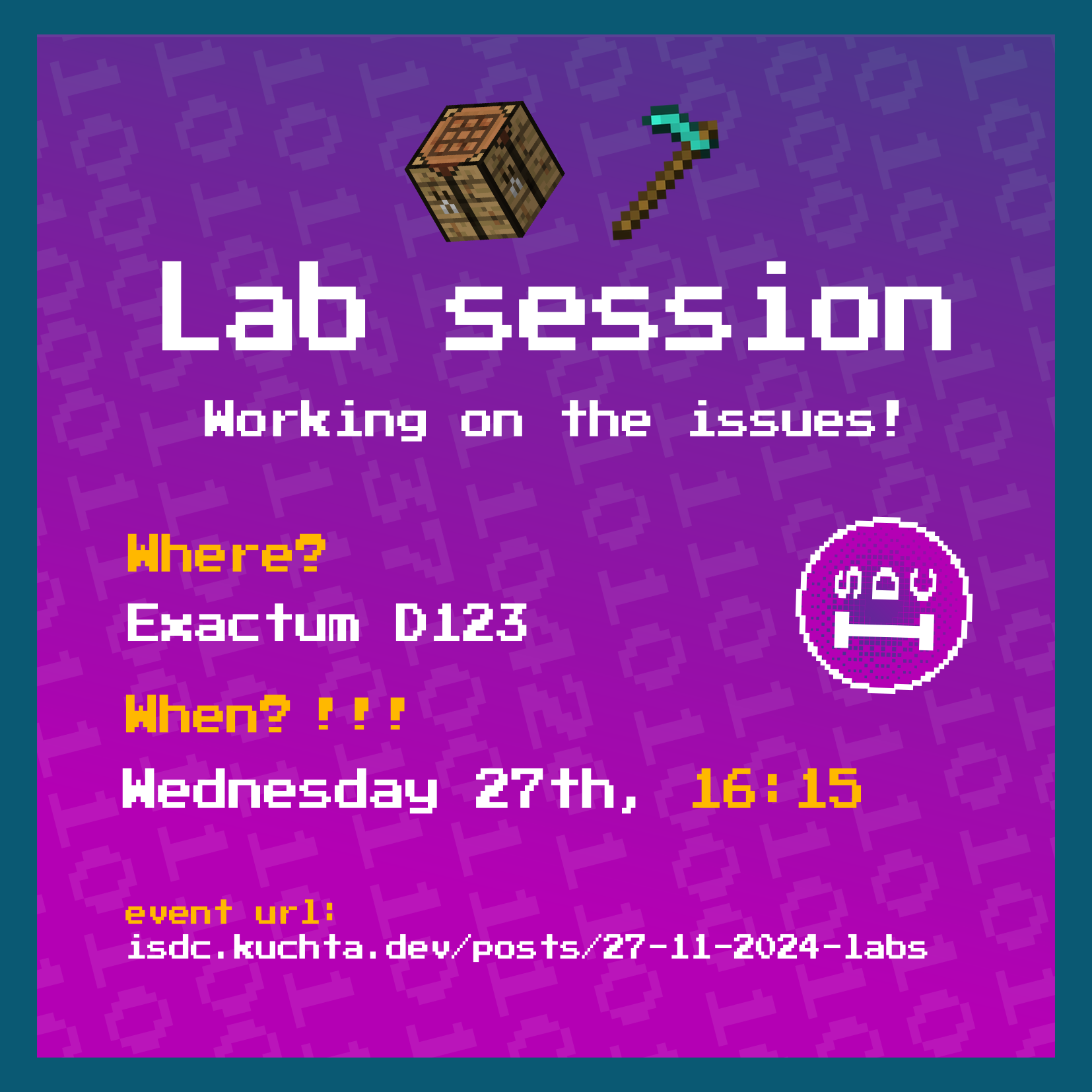

Hello! Yet another ISDC session coming right up on Wednesday! Don’t miss out on all the fun with new assignments!
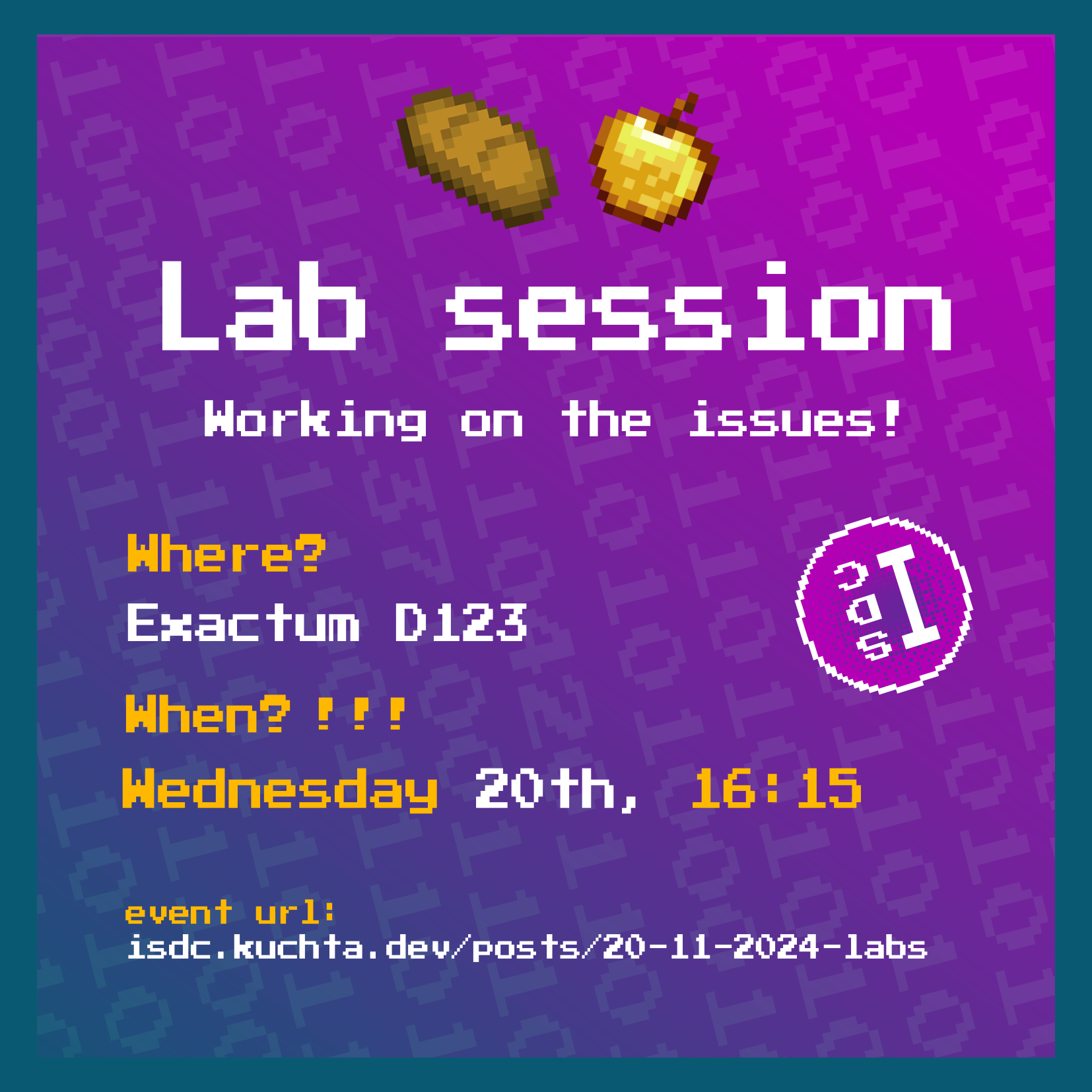
Hi, we’re again having labs this week. Sorry for the late annoucement, hope you can still make it cause as usual, we are going to have a blast! From some fun news, splitbit now uses sqlbs to generate plausible sample data for the database. This not only helps the UI team prototype the layout when it actually has some data but also help the backend developers test the queries they are writing.
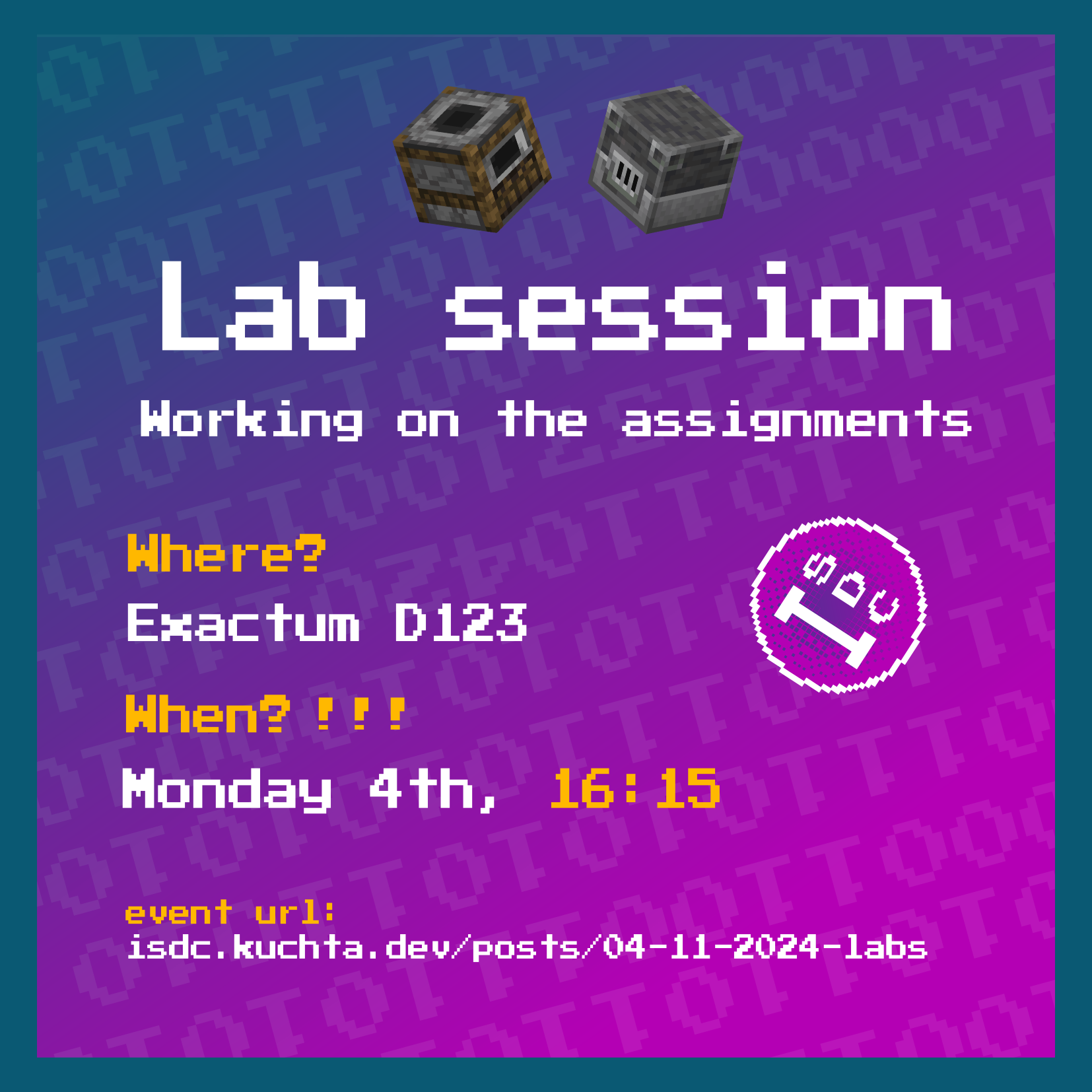
Once again, I invite you to join the labs class where we’ll be working on the assignments. We’ve got new assignments as well as changes to the existing ones:
In other news I will be having a talk with a TEK representative on additional funding of the club and announce what we’ll be getting. Hopefully, we’re gonna get increased grape rations!
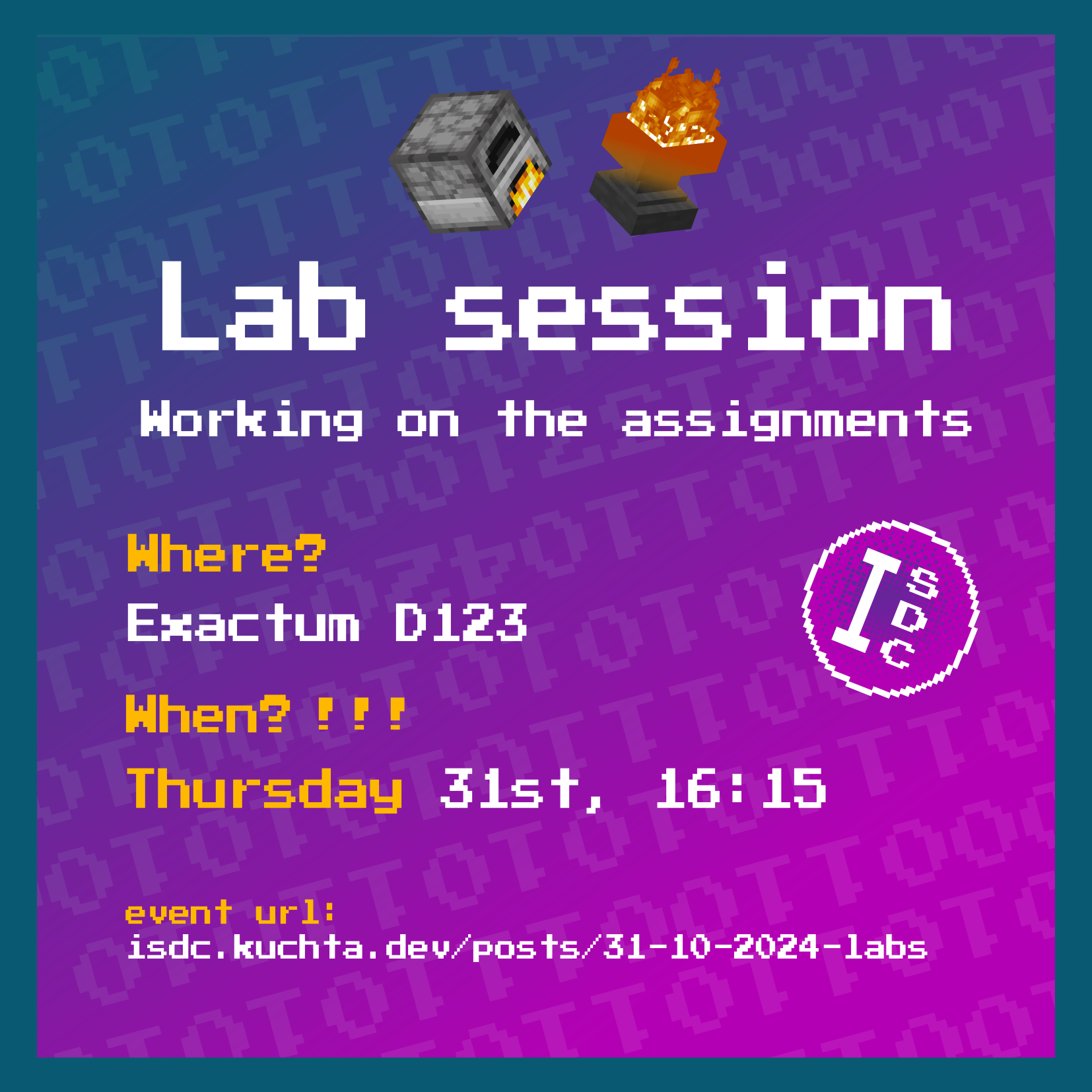
Hello, we’re having another club labs session this Thursday! We’ll commence forth with working on the assignments now that you have acquainted yourself with the architecture a bit better. Excited to see you there again!
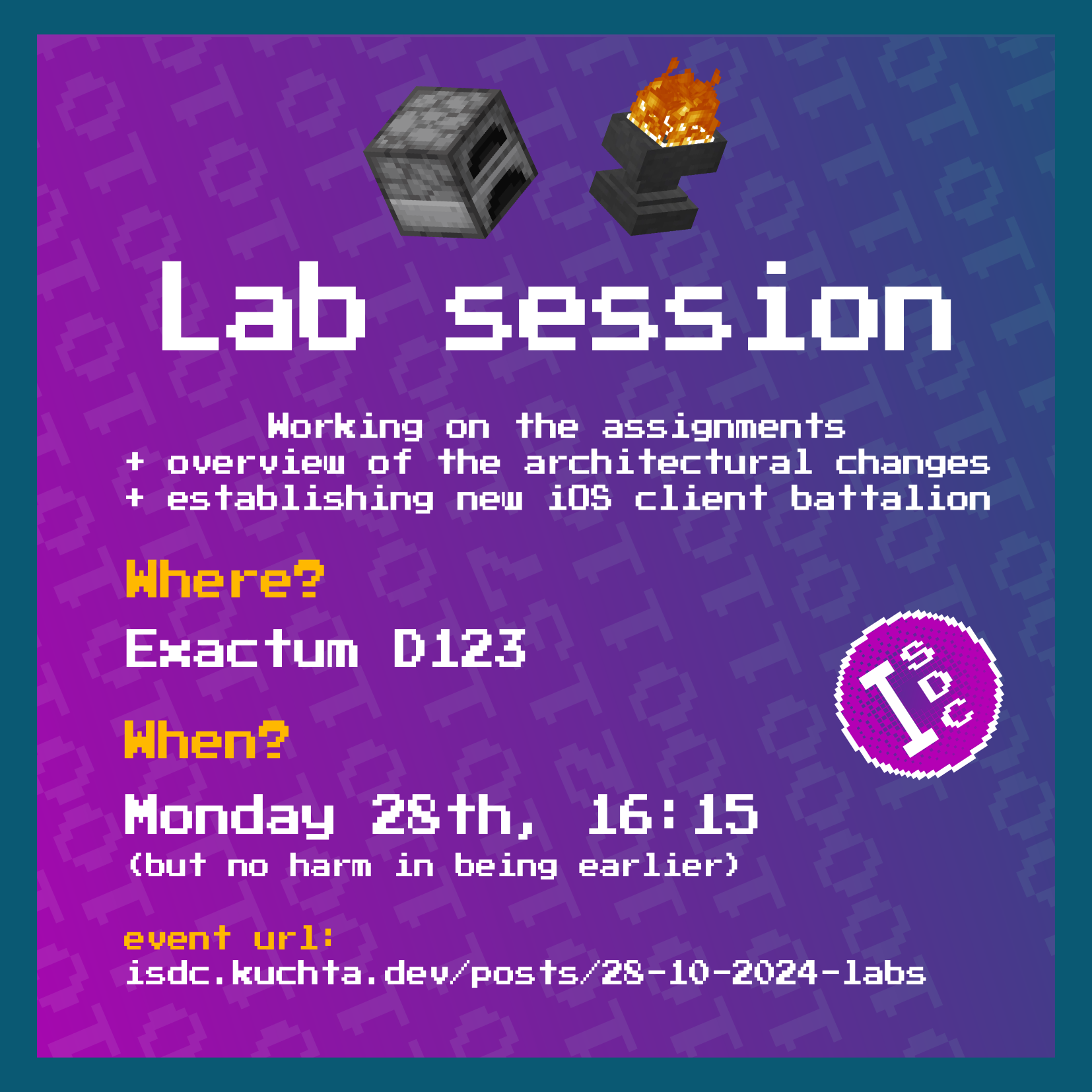
Hi! Hope you’re starrving for some software development because we’re having a lab session this week on Monday at 16:15. I’ve made some exciting architectural changes and I’m really excited to share them with you!
For the super curious, check out issue #14 and issue #16 to learn more.
Moreover, we’re beginning our iOS development efforts for our client app, so people with MacBooks will form a team to establish a fresh new codebase. See you there!
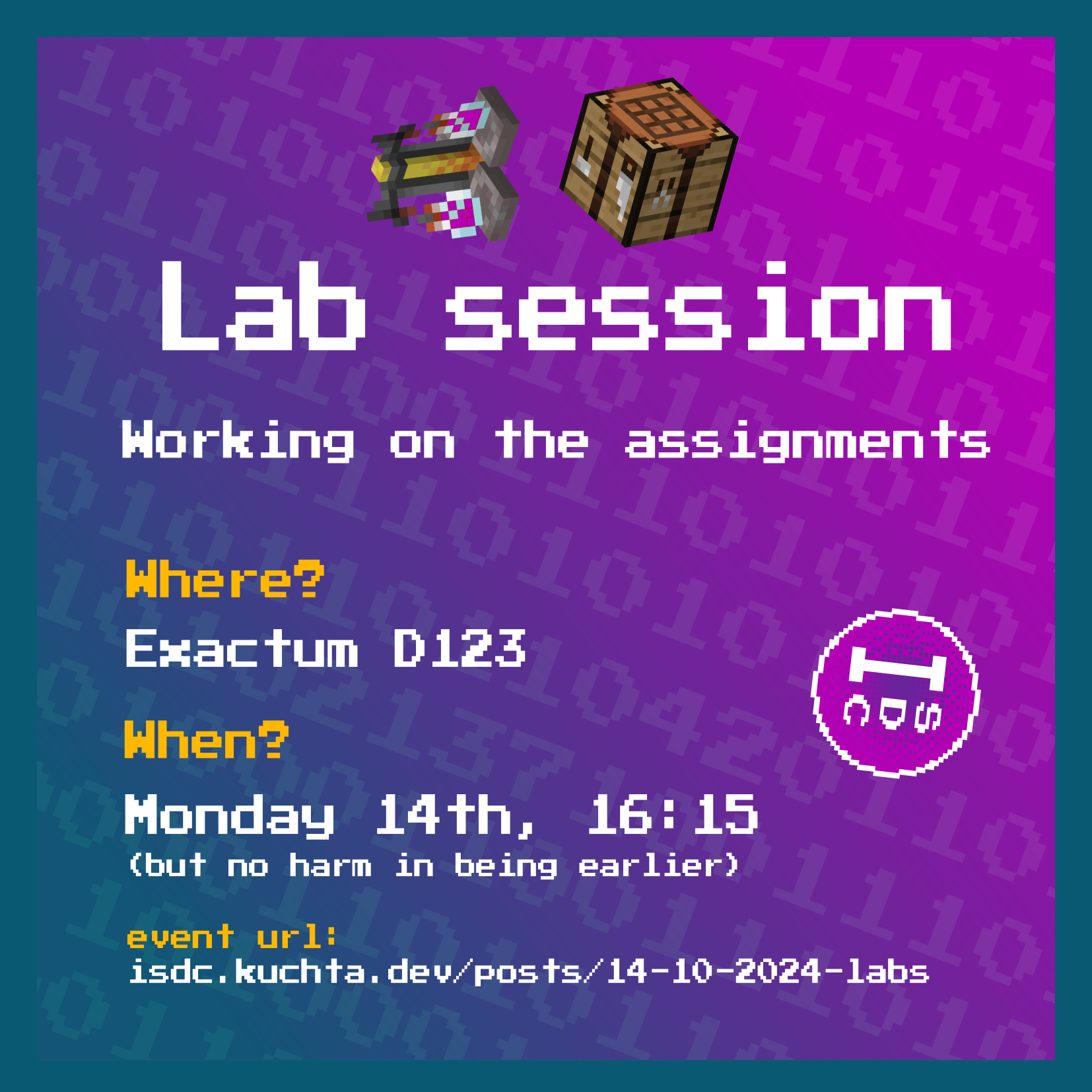
We’ll be working on the assignments again. Please read the description of yours beforehand and come in semi-prepared. We will again have some snacks sponsored by Integralis!
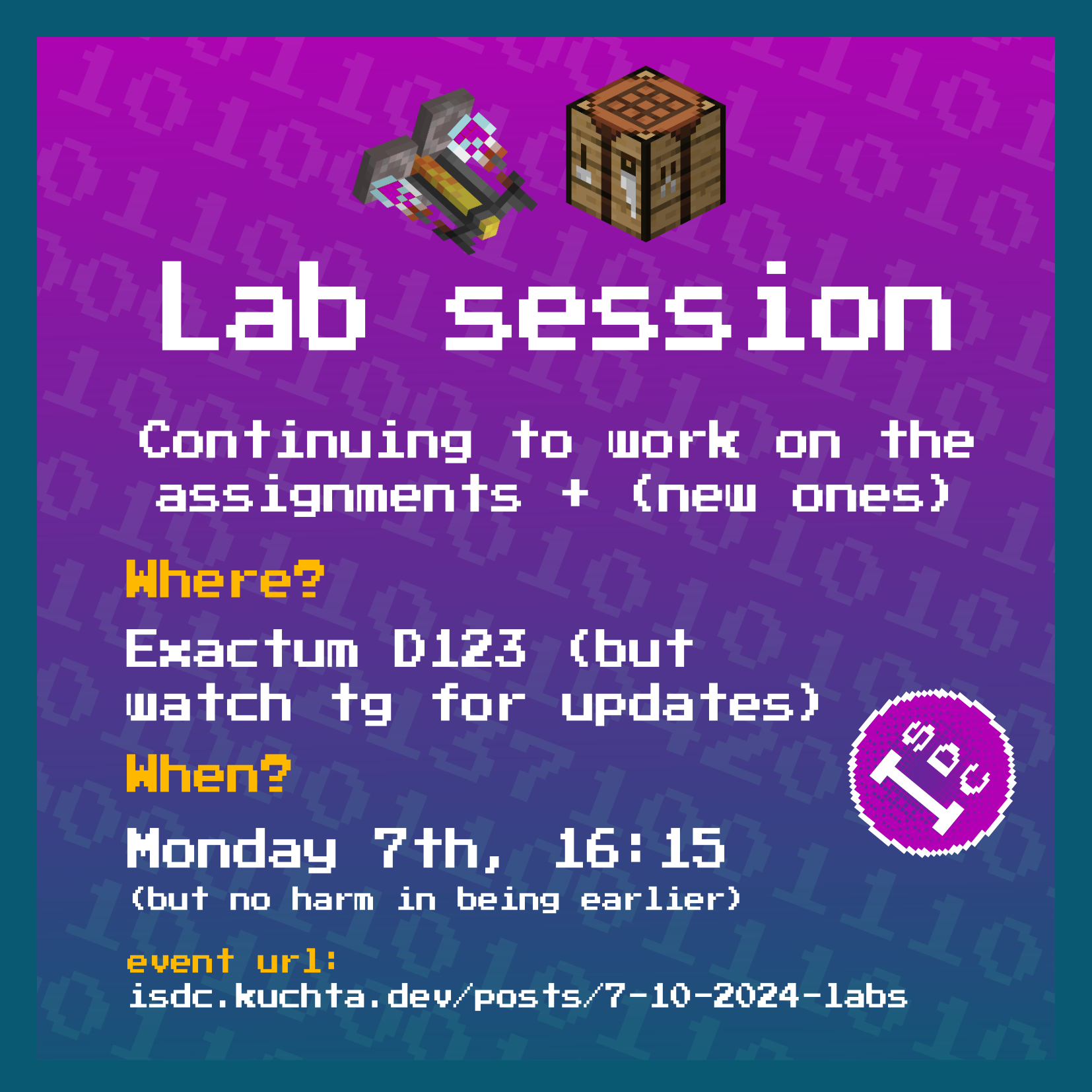
This time you’ll continue working on the assignments you got assigned last meeting + (there will be more added soon). This session won’t start with my yap (unless you want some about some piece of tech stack of our project).
Remember to revise sveltekit, gin and sqlboiler.
We will again have some snacks sponsored by Integralis!
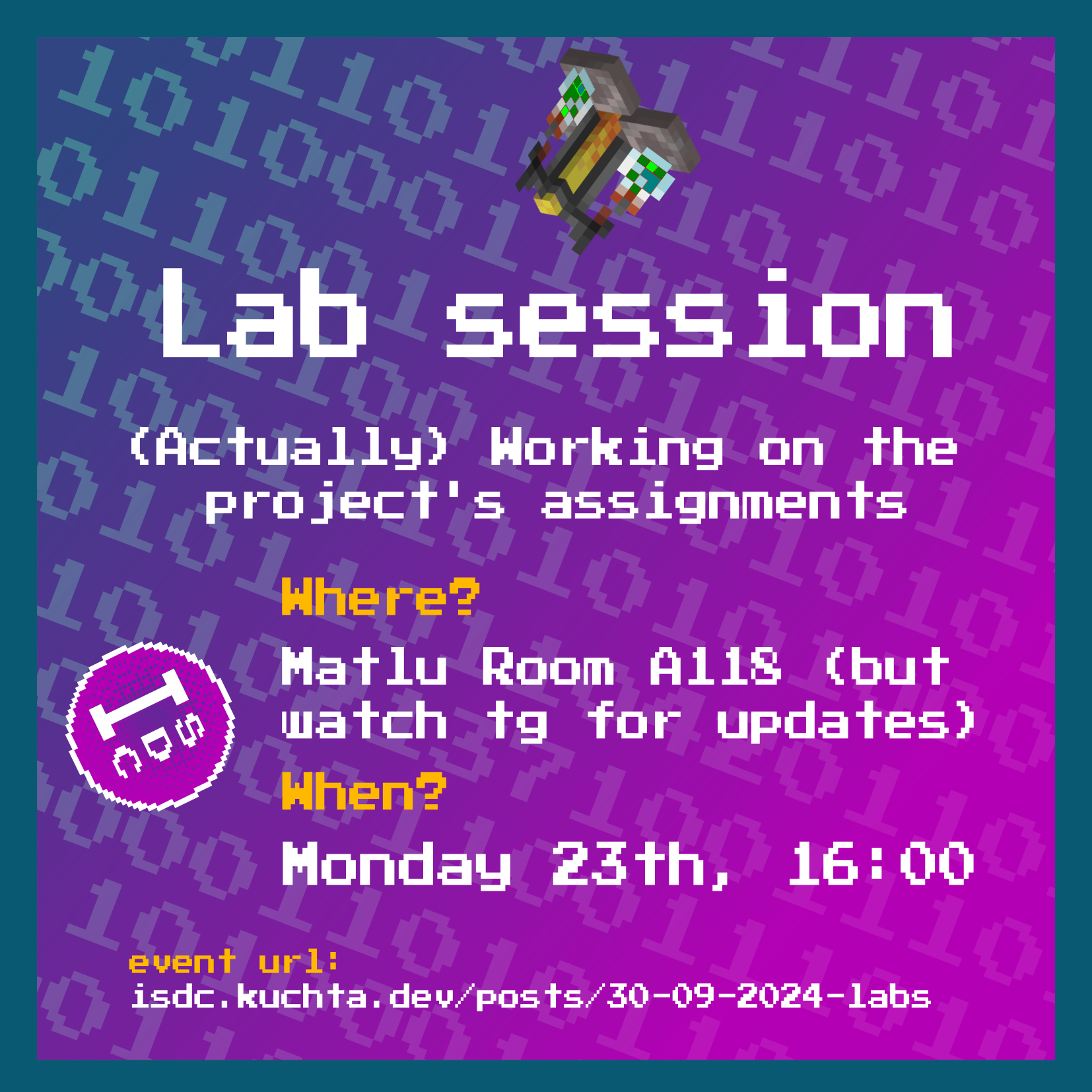
The labs start with ensuring everyone’s set up with their environment. Next, we go over a sample assignment for demonstration purposes. Each one of you then, decides on what issue you’d like to work on. During that time I’ll be help you understand the code and guide you on how to implement your features. We will again have some snacks sponsored by Integralis!
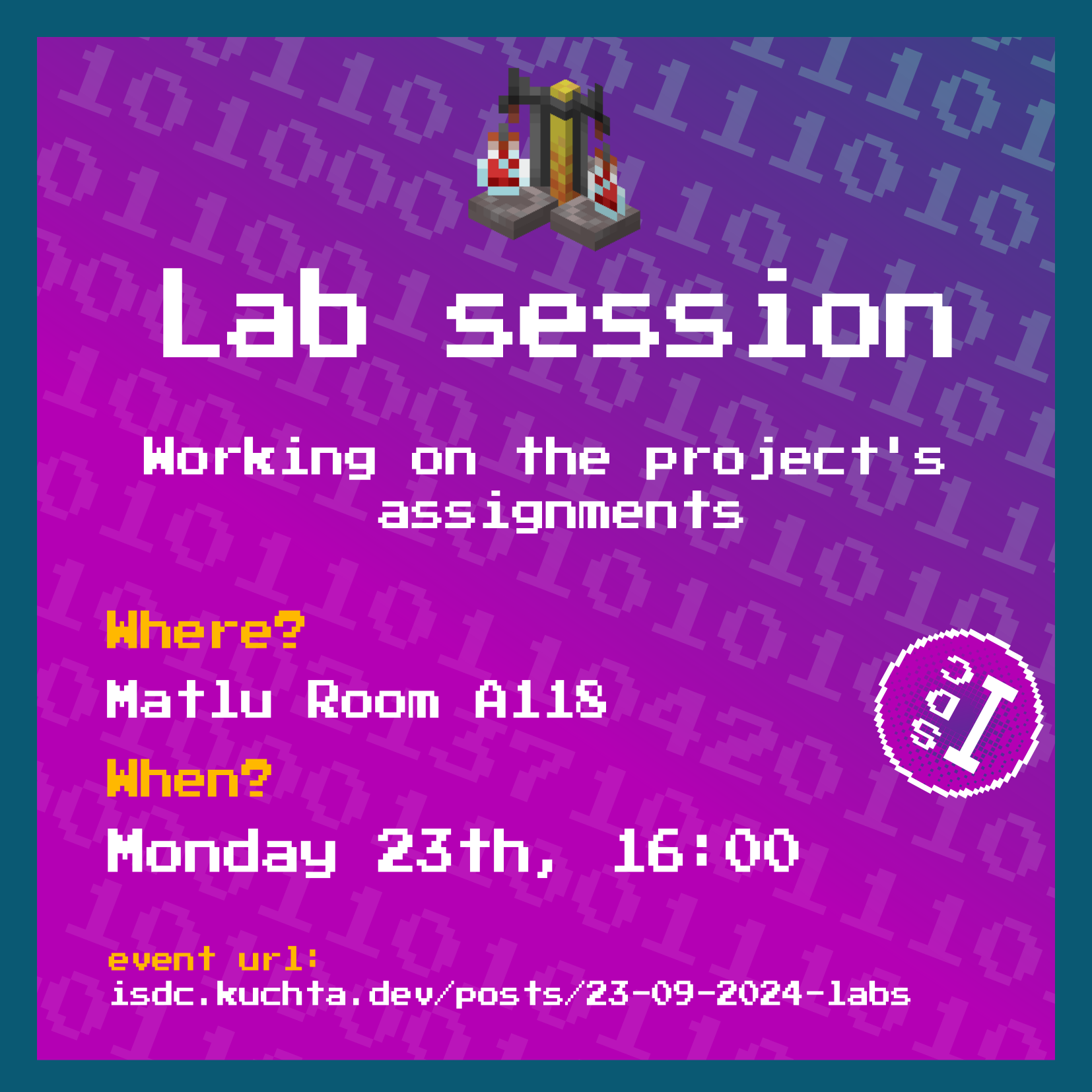
The labs start with going over a sample assignment for demonstration purposes. Each one of you then, decides on what issue you’d like to work on. During that time I’ll be offering you my assistance so that hopefully, by the end of the session, we’ll have plenty of pull requests ready! We will again have some snacks sponsored by Integralis.
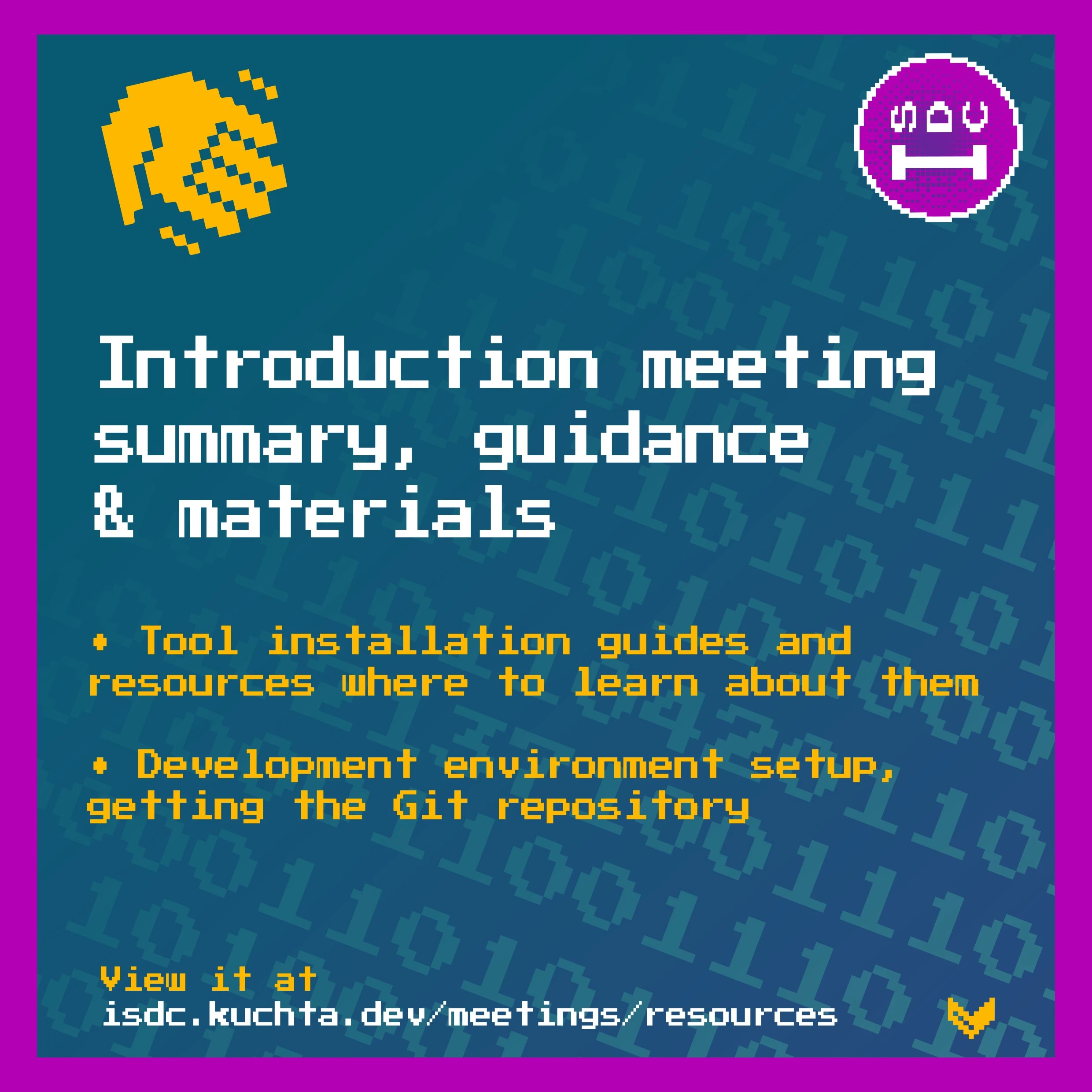
NOTE: I highly advise you using a Linux/Unix-based (hence macOS is also fine) system for your development needs. As a B.Sc. student, you have received the school laptop that runs Ubuntu. Try to do the development on it. If you insist on using Windows you can use WSL.
ps -p $$sudo apt install git - to install gitsudo apt install sqlite3 - to install sqlite3sqlite3 filename.db you start modifying the database file. If it’s not present already, the file’s going to be created.sudo snap install go --classic - to install golang as the snap package manager keeps the most up-to-date version of golang. If you already have an installation of go (if you have used sudo apt install golang) you have to get rid of it using sudo apt remove golang and all the related packages. At the end, running go version should yield at least 1.23.npm version and if it lists a bunch of items and not some command not found error, you’re good. If you don’t have it, run sudo apt install nodejs npm and it should get installed. Instead of that, you can also try installing bun by following https://bun.sh/docs/installation It’s a faster alternative to nodejs.sudo snap install android-studio --classic to install Android Studio for Android development.We are developing “codename SplitBit”. An app to help with cost keeping with friends and family. Similar to Splitwise but better as it is open source, free to use and written in a modern, lean and scalable technologies.